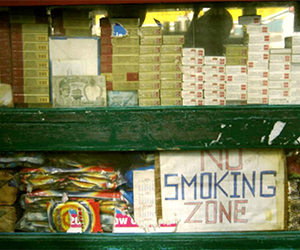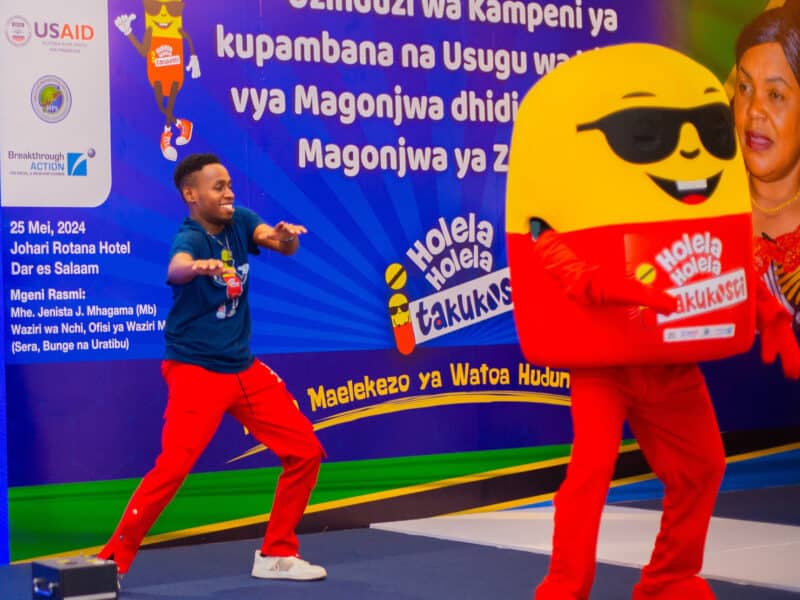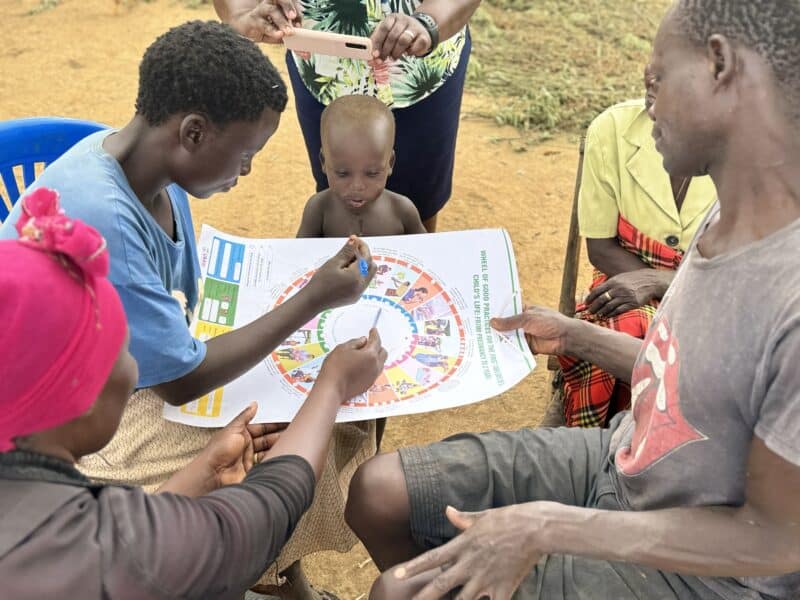Results of a pilot study conducted in Mumbai, India in March 2012 suggest that while some aspects of the Cigarettes and Other Tobacco Products (COTPA) Act, 2003 are being met in India, critical guidelines continue to go unheeded.
Implemented by JHU•CCP and funded by the Institute for Global Tobacco Control at Johns Hopkins Bloomberg School of Public Health, the pilot study focused specifically on two sections of the COTPA Act: the prohibition against smoking in public places, and the prohibition against selling tobacco products to minors and in venues within 100 yards of educational institutions.
Researchers visited two rail stations within Mumbai city limits to determine whether smoking was taking place in public places. The researchers found a lack of signage indicating “no smoking” on the station premises, at entrances and at the ticket booths. They observed two individuals smoking just outside the station, as well as two repair people sitting beside the tracks and smoking. Finally, they saw one person walk with a lit cigarette across the platform and saw some cigarette and bidi butts scattered on the platform.
To determine compliance with the guidelines addressing tobacco sales to minors and around educational institutions, researchers visited three schools. They observed that all schools did not display the required signs at the school entrances stating that tobacco sales are not permitted on the premises. In addition, they found numerous stalls selling cigarettes within 100 yards of the schools and many adults smoking around these stalls. In one instance there was a stall located only 5 yards from a school compound, adjacent to the entrance, selling candies, cookies and other goodies. Tobacco products were not on display but were available upon request. In general, the researchers observed that “proper” shops tended to have signage stating that sale of tobacco products to minors is prohibited, but “make-shift” stalls lacked similar signage. Finally, researchers found that many students do not buy cigarettes, but instead request adults (taxi drivers and auto-rickshaw drivers) to buy chewing tobacco, called “gutka” in India, for them.
This pilot study is the first step of a broad assessment CCP is conducting in partnership with the Campaign for Tobacco-Free Kids (TFK) to examine the level of implementation of Tobacco Control laws across five states in India: Bihar, Karnataka, Kerala, Maharashtra and Rajasthan. The full study will examine compliance with the prohibition against smoking in public places; the prohibition against advertisements of cigarette and other tobacco products; and the prohibition against the sale of tobacco products to children below 18 years old and in venues within 100 yards from educational institutions.
Tobacco control is a critical issue for India as nearly 35% of all Indians (47% of men and 20% of women) use some form of tobacco. Tobacco consumption in India has been growing at 2-3% each year and by 2020 it is predicted that it will account for 13% of all deaths in India.
India became a party to the WHO Framework Convention on Tobacco Control on February 5, 2004. The Convention was developed in response to the globalization of the tobacco epidemic, and attempts to reduce demand for tobacco products as well as control supply.





